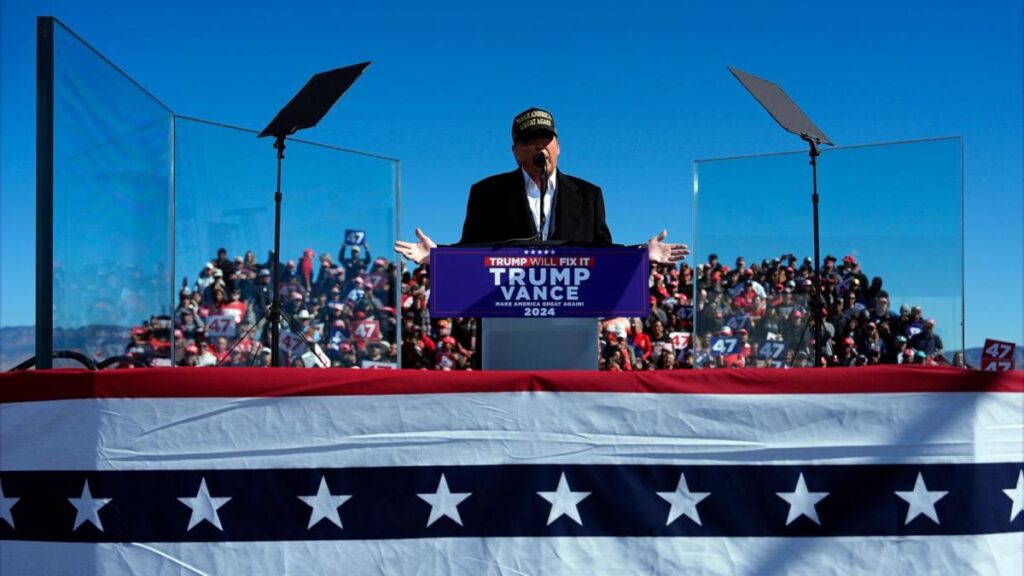Just prior to his return to Albuquerque, New Mexico, former President Donald Trump was met with a pointed message from the city’s Democratic mayor, Tim Keller. The mayor humorously remarked on social media about Trump still owing $500,000 for expenses from a rally he hosted in 2019, which originally totaled around $211,176 but has since ballooned due to accrued interest. This financial obligation reflects a broader pattern throughout Trump’s political career, where his rallies have consistently resulted in substantial unpaid bills to local municipalities for public safety costs, often leaving city budgets strained.
Trump’s 2019 rally at the Santa Ana Star Center in the Albuquerque area necessitated significant public resources, prompting local officials to note the “extreme strain” on the city’s resources, which included closing parts of downtown and incurring more than 1,500 hours of overtime for emergency services. Despite Trump’s claims of strong support for law enforcement, the failure of his campaign to reimburse cities for these expenses raises questions about his commitment to local law enforcement and how political events can impose unexpected financial burdens on municipalities.
While Trump’s campaign is not unique in generating costs for local governments during campaign events, the scale of his rallies frequently exceeds those of rivals, including significant crowds which require extensive safety planning. Multiple cities across the U.S. have had to grapple with substantial costs related to Trump’s campaign events, leading to numerous unpaid debts. The situation is exacerbated by the fact that a collection agency is currently involved in pursuing the outstanding debts from Albuquerque, with officials indicating that they have sent invoices to Trump’s residences.
Some municipalities, facing large costs incurred from Trump’s events, have opted not to bill his campaign, deeming the expenditure essential for community safety. For instance, Rio Rancho did not pursue reimbursement despite incurring nearly $240,000 after Trump’s 2019 rally, prioritizing the welfare of its citizens. Conversely, other cities have sought to reclaim expenses. For example, Green Bay recently sent a $33,000 bill for public services linked to Trump’s rally. Notably, other political events, including those hosted by Vice-President Kamala Harris, have also come with respective costs, though generally lower than Trump’s.
Municipalities impacted by Trump’s campaign events are exploring novel strategies to ensure costs are recouped. Cities such as El Paso have engaged law firms to reclaim outstanding debts, while some locations, such as Tucson, now require upfront payment for public safety costs before events occur—illustrating a shift in how local governments are managing the fiscal implications of hosting political rallies. Eau Claire, Wisconsin, for example, has begun to bill public safety costs through venues to ensure payments are met more effectively.
As mayors and city officials manage the repercussions of hosting high-profile political events, the underlying message is clear: while cities welcome candidates to make their pitches, they require a commitment to cover public safety expenses incurred. Prairie du Chien’s mayor expressed an explicit expectation for reimbursement, stating that such payments are essential in determining whether they will host campaign events in the future. In evaluating the balance between encouraging democratic engagement through rallies and managing municipal costs, many cities are reassessing their approaches to ensure fiscal responsibility while still providing spaces for political discourse.

